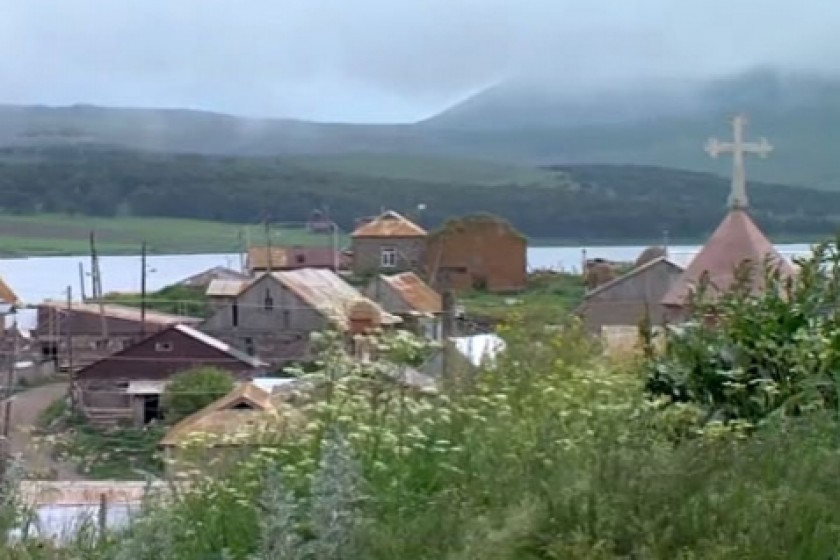
Javakhk ‘Deserters’ Call on the Youth to Return and Enrich the Region
Students enrolled in Armenian private schools in Los Angeles have been dropping 20cents every day into little collection boxes.
The coins, collected on a weekly basis, are then sent to a Javakhk assistance committee launched by the Armenian Relief Society. The student donations are finally forwarded to Javakhk.
Ashot Melkonyan, Director of the Institute of History of the Armenian Academy of Sciences, recently visited Los Angeles and spoke to students and faculty at twelve Los Angeles Armenian schools. He saw what was taking place regarding Javakhk.
Melkonyan was overjoyed to hear that 6th-12th grade students were learning about Javakhk and especially about those villages that, over the ages, have produced prominent Armenian thinkers and activists.
Melkonyan brought news of this development back to the youth committee initiated by the Javakhk Assistance Foundation (JAF), encouraging them to get involved in the work being done in Javakhk.
“I regard myself as a deserter since I do not live in Javakhk. I was born there but live a good life in Yerevan. All of us should be in Javakhk. We must understand that being patriotic is a practical matter and starts with living on the land and working there. Those of you who go to the villages of Javakhk with a diploma in your hand are the real patriots. The patriot isn’t the one who can only make speeches from this podium,” Melkonyan told the Javakhk youth committee.
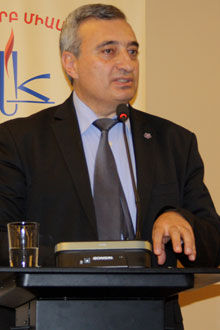 |
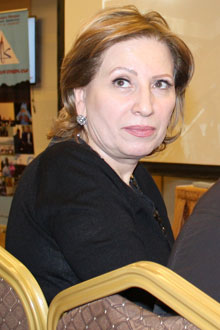 |
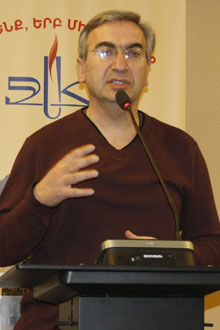 |
| Ashot Melkonyan | Karineh Khodikyan | Gagik Ginosyan |
Melkonyan added that while the JAF doesn’t operate in opposition to the Georgian government, many officials, especially in Javakhk, view its activities with suspicion.
The dramatist Karineh Khodikyan, another founder of the JAF, called on the youth to remain steadfast and courageous alongside the experience and wisdom of their elders. “Any activity has real prospects when the youth take their rightful place alongside their elders,” Khodikyan said.
Gagik Ginosyan, founder of the Garin Folk Dance Ensemble, called on the youth not to lose the traditional Javakhk stubbornness and determination. “We will return and the prerequisite for this is in the hands of the Javakhk youth,” he said.
Young Javakhk residents spoke about the various sector challenges facing the region.
Javakhk native Karen Hakobyan, a maxillofacial surgeon who heads the staff at the Yerevan State Medical University, believes that in order to solve the health problems in Javakhk one must start with the professionals. Hakobyan suggests that a plan be drafted whereby medical students get tuition reimbursement in exchange for working in Javakhk for a stated period after graduating.
Dentist Artur Manukyan states that Javakhk hospitals lack up to date equipment and that there are no dental clinics in the region. He describes the ones that exist as quite primitive in terms of technology. Manukyan proposes training sessions and conferences in Javakhk so that health professionals are brought up to current standards.
Attorney Davit Mkoyan said that Javakhk residents faced legal problems when it comes to protecting their property and singled out the right of private property. Mkoyan points to the lack of information by Javakhk residents, the speed of legal changes and, of course, the political context as reasons for this problem. He suggests that legal awareness seminars be conducted in Javakhk and, if needed, legislative initiatives be made at the Georgian parliament.
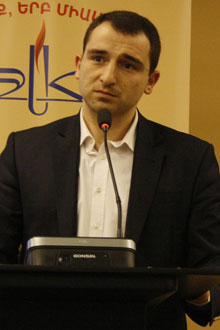 |
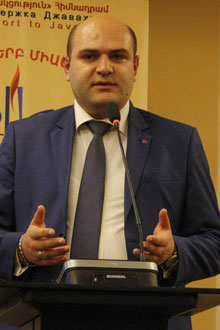 |
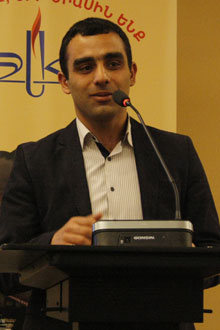 |
| Karen Hakobyan | Davit Mkoyan | Mavr Mkrtchyan |
“Many of my peers in the current situation live as romantic pioneers. The remaining minority lives according to the dictates of the day,” says singer Mavr Mkrtchyan, adding that there is no cultural life in Javakhk. The reason, he says, is because there are no cultural centers in the region. He adds that there aren‘t any renovated concert halls in Javakhk.
“In December 2012 we gave concerts in Akhalkalak, Ninotzminda and Soukhlis. You can’t imagine the conditions. A thousand people showed up in halls accommodating 600. There was no room left to stand. We were seated near the electric heaters and drinking cognac just to warm our hands. It makes no sense to hold any type of cultural event in Javakhk from November to April.”
The singer would like to see cultural centers built in the rural areas; one for several villages. He says that cultural life, to the extent that it exists, is centered in the towns. He also wants to see professionals receive training in Yerevan
His greatest wish is to organize a cultural festival in Javakhk that will assemble local talent and create conditions to provide the best with an education.
JAF Council President Sos Sahakyan said that this year has been declared the year of Javakhk cultural centers and that renovations will begin at such sites.
The first center scheduled for renovation is the center in the village of Tamala in Akhaltskha.
To spur the development of sports in Javakhk, Street Workout and Street Lifting NGO President Artur Harutyunyan and his partners have proposed to create mini playgrounds in backyards as was the case in the Soviet period.
 Videos
Videos Photos
Photos
Comments (3)
Write a comment